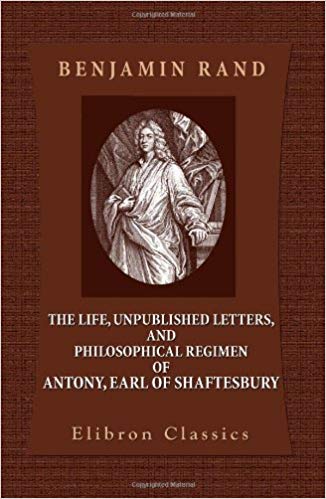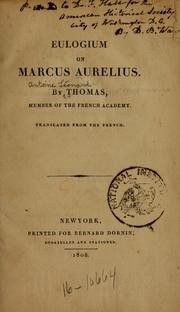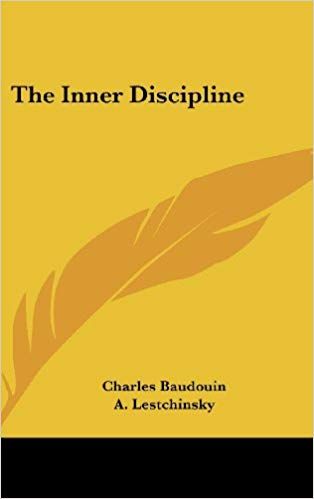Donald Robertson • • 9 min read
5 Little-Known Texts Overflowing With Ancient Stoic Wisdom

If you’re looking for more hidden Stoic wisdom, check out our latest podcast with Donald Robertson.
If you’re ready to embark on a journey to embody this ancient wisdom, join the Stoic Quest.
I’m often asked to recommend books on Stoicism. Usually that’s easy because most people begin by reading The Meditations of Marcus Aurelius and then proceeding to read The Handbook of Epictetus, his Discourses, and then Seneca’s letters.
Likewise, there are some well-known modern self-help books on Stoicism worth reading, such as William Irvine’s A Guide to the Good Life or Ryan Holiday and Stephen Hanselman’s The Daily Stoic.
However, there are also some less well-known books on Stoicism that I like to recommend to people who are interested in self-improvement. These aren’t academic texts for students of classical philosophy but rather practical guides to using Stoicism in everyday life.
You might have heard of one or two of them, if you’re a serious fan of Stoicism, but I don’t think I’ve ever met anyone who has already read all of these. So hopefully you’ll get some new perspectives on Stoicism from this list, even if you’ve already worked your way through the big three: Seneca, Epictetus, and Marcus Aurelius.
The Philosophical Regimen by Antony, Earl of Shaftesbury

This is available as part of a paperback collection of Shaftesbury’s writings called The Life, Unpublished Letters, and Philosophical Regimen of Antony, Earl of Shaftesbury (2001). Anthony Ashley Cooper, 3rd Earl of Shaftesbury (1671-1713) was an English nobleman and an accomplished philosopher in his own right, as well as being a Greek scholar and expert on Stoicism. The Philosophical Regimen is Shaftesbury’s attempt to produce his own version of The Meditations of Marcus Aurelius. It’s a personal journal of the author’s reflections on Stoic philosophy, and contains several related contemplative practices.
View the heavens. See the vast design, the mighty revolutions that are performed. Think, in the midst of this ocean of being, what the earth and a little part of its surface is; and what a few animals are, which there have being. Embrace, as it were, with thy imagination all those spacious orbs, and place thyself in the midst of the Divine architecture. Consider other orders of beings, other schemes, other designs, other executions, other faces of things, other respects, other proportions and harmony.
Be deep in this imagination and feeling, so as to enter into what is done, so as to admire that grace and majesty of things so great and noble, and so as to accompany with thy mind that order, and those concurrent interests of things glorious and immense. For here, surely, if anywhere, there is majesty, beauty and glory. Bring thyself as oft as thou canst into this sense and apprehension; not like the children, admiring only what belongs to their play; but considering and admiring what is chiefly beautiful, splendid and great in things. And now, in this disposition, and in this situation of mind, see if for a cut-finger, or what is all one, for the distemper and ails of a few animals, thou canst accuse the universe. (p. 19)
If you love the writings of Marcus Aurelius, therefore, you should definitely read this book. It’s basically an early modern version of The Meditations. On one hand the language might be a bit antiquated for some readers but, on the other hand, it’s very beautifully written. Not only does Shaftesbury provide a vivid account of Stoic philosophy, though, he also quotes extensively from Epictetus and Marcus Aurelius. His intimate knowledge of the original Greek texts means that The Philosophical Regimen also provides a great deal of insightful commentary on the surviving texts containing the thoughts of these two ancient Stoics.
The Eulogium on Marcus Aurelius by Antoine Léonard Thomas

The French poet and literary critic Antoine Léonard Thomas (1732-1785) wrote the Eulogium on Marcus Aurelius in 1775 and it was translated into English by David Bailie Warden in 1808, who dedicated it to Thomas Jefferson, “the Marcus Aurelius of the United States”. It’s a beautiful work of historical fiction. However, the author actually based it very faithfully on details of Marcus Aurelius’ life known from the surviving Roman histories.
The book opens as a eulogium, or eulogy, is about to be delivered over the body of the deceased emperor Marcus Aurelius by his elderly Stoic teacher, Apollonius of Chalcedon.
Marcus Aurelius, after a reign of 20 years, died at Vienna. He was then preparing to make war against the Germans. His body was carried to Rome, where it was received in the midst of tears and public sorrow. The Senate, in mourning, preceded the funeral chariot, which was accompanied by the people and the army. The son of Marcus Aurelius, the Emperor Commodus, followed the chariot. The procession was slow and silent. Suddenly an old man advanced in the crowd. His stature was tall, his air venerable, all knew him. It was Apollonius, the Stoic philosopher, esteemed at Rome, and more respected for his talents than for his great age. He had all the rigid virtues of his sect, and, moreover, he had been the instructor and the friend of Marcus Aurelius. He stopped near the coffin, looked sadly at it, and suddenly raising his voice…
It proceeds to depict Apollonius providing a remarkable account of the life and philosophy of Marcus Aurelius, his deceased student. It’s a fascinating read for anyone interested in Marcus Aurelius’ life, which it portrays very eloquently, connecting certain biographical events with aspects of his Stoic philosophy along the way.
(It can be hard to obtain copies of The Eulogium of Marcus Aurelius but I liked it so much that I had a special eBook edition created, which is available to download free of charge from my eLearning site.)
Stoic Serenity by Keith Seddon

I consider Stoic Serenity: A Practical Course on Finding Inner Peace (2006) to be one of the first of the current wave of self-help books based on ancient Stoic philosophy. It’s based on a correspondence course, first published in 2000, by an organisation called The Stoic Foundation. The book is based around set readings from Seneca and Marcus Aurelius. Each chapter concludes with some written exercises and at the back of the book examples of answers provided by previous students are given along with tutor feedback.
Stoic philosophy can sometimes be obscure and complicated but Seddon does a good job of expressing its key ideas in plain English.
A Stoic can be regarded, perhaps, as someone who continually reminds themselves that their plight is not as bad as it may appear, and that our capacities, to deal with both the petty frustrations of daily life and significant turns of bad fortune, are superior (with philosophy’s aid) to how we usually imagine them. (p. 78)
It covers Stoic teachings on the good, bad and indifferent; what is in our power; “living simply” and “living according to nature”; universal nature, God and fate; living in society; and impermanence, loss and death. It’s a very enjoyable book to read with a practical self-help focus, which makes it ideal for newcomers to the subject who are looking for guidance on applying Stoic ideas in daily life.
Thoughts of a Philosophical Fighter Pilot by James Stockdale

James Stockdale (1923–2005) was a US fighter pilot shot down over North Vietnam at the start of American involvement in the Vietnam War. As he ejected from his plane the thought flashed through his mind that he was now leaving his own world and entering the world of Epictetus. He was right. He was immediately captured by a mob of villagers who beat him to within an inch of his life, snapping his leg, and leaving him permanently crippled.
The irony, not lost on Stockdale, was that he had lost the use of his left leg, just like the crippled slave, Epictetus, whose ancient Handbook (Enchiridion) of Stoic philosophy he had previously devoured after studying philosophy as a Masters student at Stanford University. Stockdale was handed over to the North Vietnamese Army and incarcerated for over seven years in the notorious prisoner of war camp nicknamed the Hanoi Hilton, where he was repeatedly tortured.
Thoughts of a Philosophical Fighter Pilot (1995) is a collection of talks and articles about his use of Stoic philosophy to cope with the extreme circumstances he endured as a prisoner of war in Vietnam.
Most of what I say today comes from where my interest lies, in what might be called the modes of thought and conduct set down by Epictetus to mold others to a Stoic life that they might reap its benefits. And if I were asked, “What are the benefits of a Stoic life?” I would probably say, “It is an ancient and honorable package of advice on how to stay out of the clutches of those who are trying to get you on the hook, trying to give you a feeling of obligation, trying to get moral leverage on you, to force you to bend to their will.” Because I first reaped its benefits in an extortionist prison of torture, I could go on and say “It’s a formula for maintaining self-respect and dignity in defiance of those who would break your spirit for their own ends.” (p. 177)
Stockdale spent four years in isolation, two years in leg irons, and was severely tortured fifteen times in total, by a method known as “taking the ropes”. He called the many portions of Epictetus’s Handbook that he had learnt by heart and memorized his “consolation” and “secret weapon” during captivity. After being liberated, at the end of the war, Stockdale became a celebrated military hero, even campaigning as a vice-presidential candidate, supporting the independent Ross Perot, in a US election. He was one of the most highly-decorated officers in US naval history, and spent his later years lecturing on the relevance of Stoic philosophy to modern military life.
The Inner Discipline by Charles Baudouin and A. Lestchinsky

The Inner Discipline, first translated into English in 1924, is an eclectic work that draws inspiration freely from Buddhism and Christianity as well as the early rational approaches to psychotherapy and the “conscious autosuggestion” method of Emile Coue. However, Charles Baudouin, the main author, was one of the earliest writers in the field of modern psychotherapy to embrace concepts and techniques from Stoic philosophy. Indeed, a whole chapter is dedicated to the value of ancient Stoicism as an approach to self-help. The authors wrote that “one of the most original characteristics of Stoicism was the stress it laid upon a vigorous discipline, upon the education of the character”, and for this reason they considered it the branch of classical philosophy most relevant to modern psychotherapy.
The founders of cognitive-behavioural therapy, from the 1950s onward, would emphasize the famous quotation from Epictetus that says: “Men are disturbed not by things but by the views which they take of them” (Enchiridion, 5). However, Baudouin focused on the opening sentence of the Enchiridion, which arguably expresses a more fundamental principle of Stoicism: “One of the first of these philosophers’ precepts is that we must thoroughly grasp the distinction between the things which are in our power and the things which are not in our power” (p. 40).
Imagination and opinion are pre-eminently to be classed among the things which are within our power. There is a familiar adage: If we can’t get what we like, we must like what we have. The Stoics held the same view, though on a somewhat higher plane. Instead of lamenting because we cannot change our lot, let us learn to love it. Happiness and unhappiness are, to a great extent, matters of imagination and opinion. (p. 45)
Indeed, Baudouin highlights the psychotherapeutic value of several aspects of Stoicism which would be largely overlooked by the founders of cognitive-behavioural therapy. For instance, the Stoics often recommended that, like the natural philosophers of their day, we should learn to analyze events dispassionately into their constituent parts.
The principle that underlies the [Stoic] method may be described as depreciation by analysis. When we decompose into its constituent parts the object which has been of so much concern to us, we shall realise that it is a matter of no moment (much as a child which has pulled a toy to pieces is disillusioned, and says, “Is that all it is?”). (p. 48)
When we do this we weaken our response to events, or objects, that might otherwise arouse unhealthy desire or harmful emotions. If you’re interested in the psychological applications of ancient philosophy, for therapy or self-improvement, it’s therefore worth reading The Inner Discipline even though it’s not entirely dedicated to Stoicism.


![Seneca’s Groundless Fears: 11 Stoic Principles for Overcoming Panic [Video]](/content/images/size/w600/wp-content/uploads/2020/04/seneca.png)







